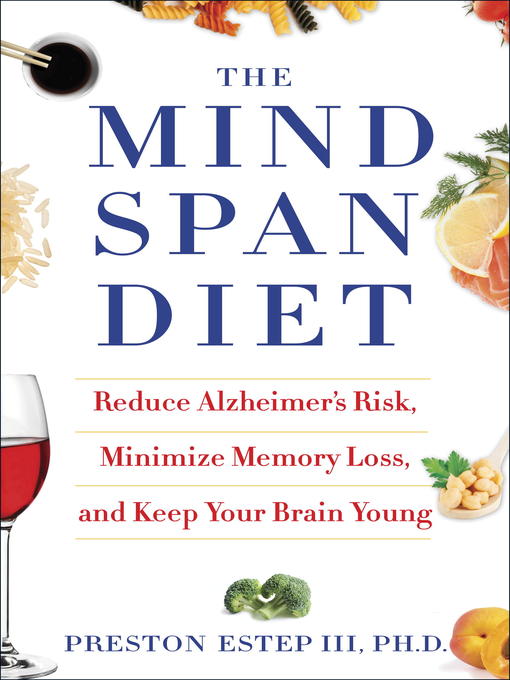
The Mindspan Diet
Reduce Alzheimer's Risk, Minimize Memory Loss, and Keep Your Brain Young
کتاب های مرتبط
- اطلاعات
- نقد و بررسی
- دیدگاه کاربران
نقد و بررسی

Starred review from April 18, 2016
In his eye-opening first book, Estep, director of gerontology at the Harvard Personal Genome Project, proposes “mindspan” as a quality-of-life standard for an era when people are living increasingly longer. As he writes, “lifespan measures how long we live, but how fulfilling that life is depends on how well your mind works during that time.” Estep thus examines populations who have both long lives and long mindspans—which he calls the “mindspan elite”—using the latest information on metabolism and genetics to understand their dietary secrets. Most surprising is his assertion that after age 40, iron, dairy, and whole grains can be harmful to metabolism and contribute to diseases associated with aging, including dementia. Estep’s insights into aging are informed by the last 60 years of research into senescence—the “array of physical changes that accompany the decline of… reproductive ability.” The downside to this fascinating, important book is that it’s another bolus of the food-as-medicine philosophy that can make readers feel guilty if they develop disease. However, Estep includes plenty of practical info on improving one’s mindspan and puts some refined grains back on the table. The book includes extensive notes and an appendix with “cheat sheets.” Agent: Mitchell Waters, Curtis Brown.

April 15, 2016
Harvard University geneticist Estep offers the latest entry in the antiaging diet arena. He coins the term mindspan to describe the length of life with good mental performance and notes that both genetic and environmental factors play a role. The latter can be altered to insure that the mind remains in peak condition. The author looks at areas of the world where people live long, fully functional lives and examines their diets. He states that nutritional needs change with age and that some foods that are important for young people may be harmful later in life. In particular, iron-fortified items, dairy, and some whole grains should be avoided after age 40. He recommends a modified Mediterranean diet that includes healthy oils (canola, olive), breads and pasta made with flour that is not enriched, white rice that is not iron-fortified, fruits and vegetables, and small amounts of meat and fish. Lists of recommended foods and brands as well as tasty recipes are provided; also offered are resources for Alzheimer's disease and other dementias and recommended genetic and biomarker testing. VERDICT Presenting a sensible regimen that people can follow easily, this recommended diet book with useful information about aging is for most consumer health collections.--Barbara Bibel, formerly Oakland P.L.
Copyright 2016 Library Journal, LLC Used with permission.

























دیدگاه کاربران